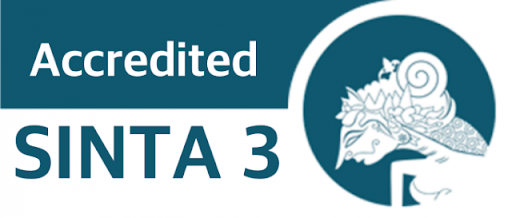The Influence of Organizational Citizenship Behavior and Quality of Work Life on Employee Performance
DOI:
https://doi.org/10.37680/ijief.v3i1.5252Keywords:
Organization; Work Life; Employee PerformanceAbstract
Organizations generally believe that excellence must be maintained in order to increase performance, because performance basically affects employee performance as a whole. Therefore, to pursue and improve performance, Organizational Citizenship Behavior and Quality of Work Life are needed. This research examines how much influence Organizational Citizenship Behavior and Quality of Work Life have on employee performance. This research aims to find out and obtain data related to the influence of organizational citizenship behavior and quality of work life on employee performance, where this data will be used as material in preparing a thesis. The method used in this research is descriptive and verification methods. The research population consisted of 56 employees, and the sampling technique used in this research was non-probability sampling. Data collection techniques use interviews, observation, questionnaires and documentation. Data analysis in this study used multiple linear regression analysis. Through the results of data processing, a prediction model for the variables organizational citizenship behavior and quality of work life on employee performance can be formed as follows = 7.482 + 0.197X1 + 0.410X2. The results of data processing show that the R2 value is 0.547 or 54.7%, this illustrates that the contribution of organizational citizenship behavior and quality of work life to the increase or decrease in employee performance is 45.3% and the remaining 0.453 or 45.3% is the contribution of other variables not included in the model proposed in the research. Organizational citizenship behavior and quality of work life together have a positive and significant effect on organizational citizenship behavior on employee performance at Surya Toserba Kadipaten, Majalengka Regency.
References
Kasmir, (2016). Manajemen Sumber Daya Manusia (Teori Dan Praktik) (6th ed), PT. Rajagrafindo Persada.
Luhur Agung Bowo Leksono (2018). Analisis Pengaruh Quality Of Work Life (QWL) Terhadap Kinerja Dan Kepuasan Kerja Karyawan, PT. Subur Jaya Embroidery, Universitas Islam Syarif Hidayatullah Jakarta.
Mariane, I. (2018). Azas – Azas Manajemen (M.Zm(Ed)), CV. Kencana Utama, Depok.
Muhamad Rifqi Sandria (2019). Pengaruh Organizational Citizenship Behavior (OCB), Kapabilitas Dan Disiplin Kerja Terhadap Kinerja Karyawan, Skripsi Fakultas Ekonomi Universitas Semarang (S1).
Mufti Hasan Alfani (2018). Analisis Pengaruh Quality Of Work Life (QWL) Terhadap Kinerja Dan Kepuasan Kerja Karyawan, PT. Bank BRI Syariah Cabang Perbankan, Dosen Fakultas Agama Islam Universitas Islam Riau. Jurnal Tabarru’ Islamic Banking Aad Finance.
Mohammad Faisal Amir (2015). Evaluasi Kinerja Karyawan Konsep Dan Penilaian Kinerja. Perusahaan Mitra Wacana Media.
Neny Nora Wiranti (2020). Organizational Citizenship Behavior (OCB) Terhadap Kinerja Karyawan, PT. Perkebunan Nusantara IV Kebun Bah Jambi, Fakultas Agama Islam Universitas Muhammadiyah Sumatera Utara.
Porkiani, Masoud, et, al. (2010). Relationship Between The Quality Of Work Life and Employees’ Aggression. Journal Of America Seciences, Vol. 7 (2).
Robbins (2012). Dimensi Dan Indikator Kinerja, ejournal. Unikama. Ac.id Sugiyono (2019). Metode Penelitian Kuantitatif, Kualitatif, dan R & D. Bandung :
Alphabet.
Sugiyono (2018). Metode Penelitian Kuantitatif, Kualitatif, dan R & D. Bandung :Alphabet. Sedarmayanti (2001). Sumber Daya Manusia Dan Produktivitas kerja. Mandar Maju.
Downloads
Published
How to Cite
Issue
Section
License
Copyright:
An author who publishes in Indonesian Journal of Islamic Ekonomics and Finance agrees to the following terms:
- Author retains the copyright and grants the journal the right of first publication of the work simultaneously licensed under a Creative Commons Attribution-NonCommercial 4.0 International License that allows others to share the work with an acknowledgment of the work's authorship and initial publication in this journal.
- Author is able to enter into separate, additional contractual arrangements for the non-exclusive distribution of the journal's published version of the work (e.g., post it to an institutional repository or publish it in a book) with the acknowledgment of its initial publication in this journal.
- Author is permitted and encouraged to post his/her work online (e.g., in institutional repositories or on their website) prior to and during the submission process, as it can lead to productive exchanges, as well as earlier and greater citation of the published work (See The Effect of Open Access).
License:
-
Attribution — You must give appropriate credit, provide a link to the license, and indicate if changes were made. You may do so in any reasonable manner, but not in any way that suggests the licensor endorses you or your use.
-
NonCommercial — You may not use the material for commercial purposes.
-
No additional restrictions — You may not apply legal terms or technological measures that legally restrict others from doing anything the license permits.
You are free to:
- Share — copy and redistribute the material in any medium or format
- Adapt — remix, transform, and build upon the material

This work is licensed under a Creative Commons Attribution-NonCommercial 4.0 International License.



.png)







